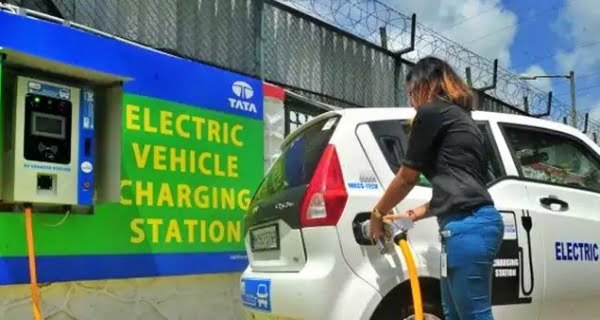
New Delhi: To reduce dependence on oil imports of petroleum products, fuel costs, and pollution, the Central Government is constantly promoting the use of E-Vehicles. The biggest challenge for maximum use of electric vehicles is the lack of charging stations and high production costs. The central government wants electric vehicle charging stations to be set up across the country like petrol pumps. Road Transport and Highways Minister Nitin Gadkari informed that the Central Government is working on a plan to install e-vehicle charging kiosks at 69 thousand of petrol pumps across the country.

Vehicle engine manufacturing industry in countries like Brazil and America
At the Electric Mobility Conference 2020, Gadkari appealed to the automobile industry like the US and Brazil to work towards building vehicle engines powered by petrol, ethanol, and CNG. Gadkari expressed confidence that the Indian automobile industry would like to embrace the opportunity of alternative fuels like CNG, electric, and hydrogen. Meanwhile, he said that the automobile sector should also work towards manufacturing double-decker buses. Also informed that the Central Government is developing the Delhi-Mumbai Expressway as an Electric Highway.
India is working towards becoming self-reliant in all areas. The Government of India is giving all possible encouragement to the industry for this. Union Minister Gadkari said that his dream is to make India an automobile manufacturing hub in the next five years. At the same time, he expressed confidence that his dream will come true. Gadkari said that the automobile sector has made many innovations recently. This dream will come true with the development of different designs and models of vehicles, brilliant research work, big market, stable framework of the government, and new ideas of the country’s multi-talented engineers.
The Center has taken these steps to promote e-vehicles
Several steps have been taken recently to promote electric vehicles in the country. The central government has reduced the GST on electric vehicles to 5 percent. It has also allowed keeping the price of batteries separate from the price of vehicles. Explain that batteries cost 30% of the cost of an electric vehicle. Not only this, but the central government has also announced a production linked incentive of Rs 51,000 crore for the automobile sector. There is also a lot of potential for new jobs in this sector. According to an estimate, the automobile sector needs 25 million skilled workers.












































